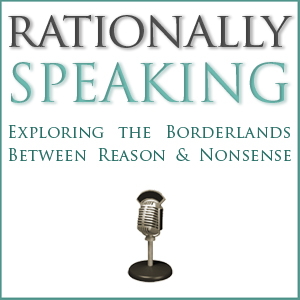Rationally Speaking #192 - Jesse Singal on “The problems with implicit bias tests”
Rationally Speaking Podcast
New York City Skeptics
4.6 • 787 Ratings
🗓️ 3 September 2017
⏱️ 52 minutes
🧾️ Download transcript
Summary
Transcript
Click on a timestamp to play from that location
| 0:00.0 | Today's episode of Rationally Speaking is sponsored by Givewell, a nonprofit dedicated to finding outstanding charities and publishing their full analysis to help donors decide where to give. |
| 0:09.1 | They do rigorous research to quantify how much good a given charity does, how many lives does it save, or how much does it reduce poverty per dollar donated? |
| 0:17.3 | You can read all about their research or just check out their short list of top recommended evidence-based charities to maximize the amount of good that your donations can do. |
| 0:25.2 | It's free and available to everyone online. Check them out at give well.org. Welcome to Rationally Speaking, the podcast where we explore the borderlands between reason and nonsense. |
| 0:48.6 | I'm your host, Julia Galef, and my guest today is Jesse Single. |
| 0:53.5 | Jesse is a journalist, formerly the senior editor for New York Magazine's website, |
| 0:57.8 | where he ran the blog The Science of Us, and is now a contributing writer for New York Magazine. |
| 1:02.8 | I started following Jesse on Twitter because from time to time, these articles would pop up in my news feed on Facebook or on Twitter, and I'd be like, |
| 1:12.7 | huh, this is an unusually thoughtful, statistically literate example of science journalism. |
| 1:18.3 | And then I would check the byline, and it would be by Jesse every time. |
| 1:21.9 | So I was like, I should really follow this person on Twitter. |
| 1:26.0 | We're going to be talking today about the implicit |
| 1:29.3 | association test, the most famous test, I would say, of unconscious bias, particularly racial or |
| 1:36.9 | gender bias. And you may have heard of the IAT, not necessarily by that name, but you may have |
| 1:43.0 | heard it referenced because in all of these |
| 1:45.0 | conversations that our society has been having about sexism in the tech world or about |
| 1:49.6 | racism among police officers in the last few years, people often reference the IAT as evidence |
| 1:55.2 | that, look, even if you don't feel consciously biased in your views of women or minorities, that doesn't mean you |
| 2:01.9 | aren't. And in fact, most people have these unconscious biases against these groups, which the IAT |
| 2:07.5 | can reveal. So it's been in the public discourse a lot, probably more than almost any other social |
| 2:14.4 | psychology instrument. However, as researchers and journalists have been |
| 2:20.6 | scrutinizing the IAT a little more closely and the evidence that it's measuring something real and |
... |
Please login to see the full transcript.
Disclaimer: The podcast and artwork embedded on this page are from New York City Skeptics, and are the property of its owner and not affiliated with or endorsed by Tapesearch.
Generated transcripts are the property of New York City Skeptics and are distributed freely under the Fair Use doctrine. Transcripts generated by Tapesearch are not guaranteed to be accurate.
Copyright © Tapesearch 2025.

